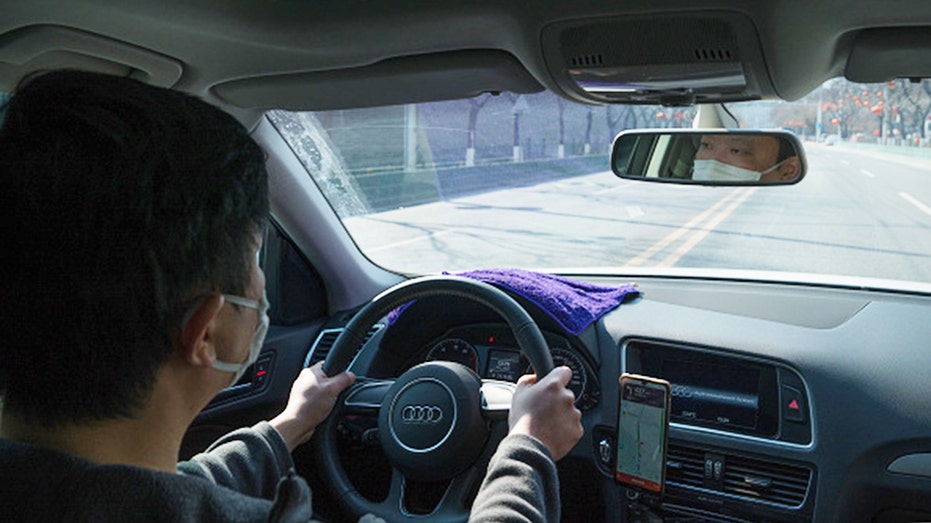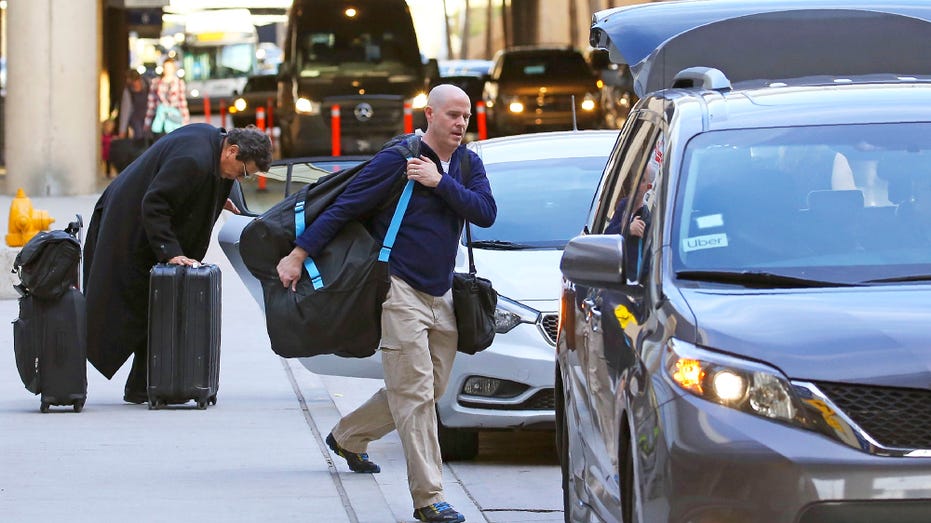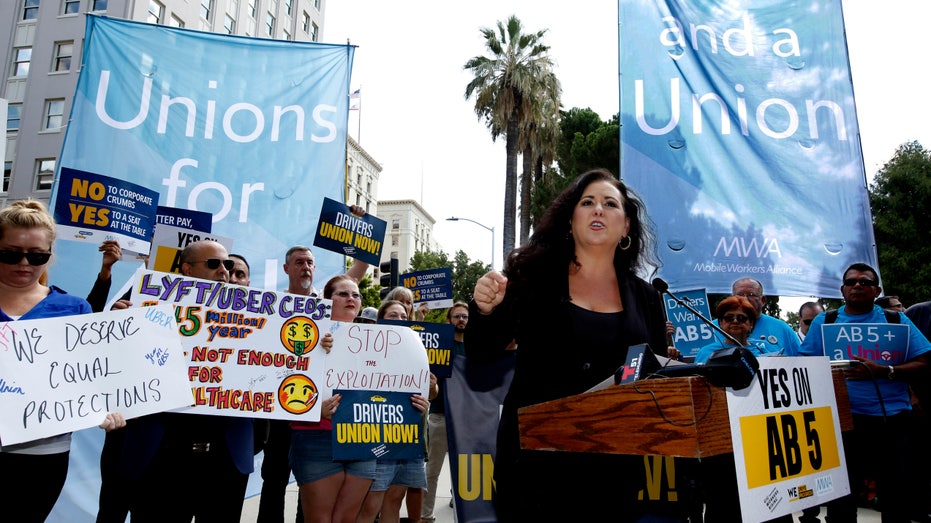Coronavirus leads Uber to launch new delivery services
Uber announced on Monday that it is expanding its delivery services in accordance with demand brought on by the novel coronavirus pandemic.
The tech company is launching two new delivery services called Uber Direct and Uber Connect in select cities as extensions of its original Uber and Uber Eats apps, which will likely open up more work opportunities for the company's drivers during the outbreak.
"We’ve heard from people around the world who are looking for new ways to get necessities delivered to their door quickly, and businesses that are exploring how to better serve their customers from afar. That’s why we’ve accelerated our delivery efforts beyond food and grocery, to provide on-demand and scheduled last-mile delivery solutions for consumers and businesses alike," the company said in a Monday blog post.

A Didi (Chinese alternative to Uber) driver wears a mask while driving on February 15, 2020 in Beijing, China. (Photo by Andrea Verdelli/Getty Images)
Uber Direct will allow customers to order items from select retailers besides restaurants as an extension of Uber Eats. In New York City, the app partnered with medicine delivery company Cabinet to help residents get quick access to the medicine they need without having to go into a pharmacy.
Uber Connect allows customers to send packages and letters to friends and families in a "cost-effective" way without having to visit the post office as a feature on the Uber app. The feature is available in 25 cities across the U.S., Australia and Mexico.
CORONAVIRUS PROMPTS TIM HORTONS, UBER EATS TO TEAM UP FOR FIRST TIME
Uber said in its blog post that the company's goal with the new services is to open opportunity for both customers and employees "to help drivers find essential work today, while unlocking new opportunities in the future."
Uber drivers, who are employed as gig workers, have criticized the rideshare giant for halting its pool services in March in response to the pandemic and not doing enough to financially support its drivers while business came to a screeching halt.

Passengers find their rides at the Ride Share point as they exit Phoenix Sky Harbor International Airport in Phoenix. (AP Photo/Ross D. Franklin, File)
Uber has provided tens of millions masks to drivers in the "hardest hit" U.S. cities. The company previously told FOX Business that it would offer up to 14 days of paid sick leave to drivers who test positive for COVID-19, or those who have been otherwise affected by self-quarantine.
The rideshare giant also said it helped secure "39 weeks of expanded unemployment insurance and additional payments of $600 per week through July 31," tax rebate checks and auto loan payments in the Trump administration's COVID-19 stimulus package.
CORONAVIRUS LEADS UBER TO OFFER 10M FREE RIDES, DELIVERIES FOR THOSE IN NEED
Still, drivers say Uber should be offering the same health care benefits to its gig workers as other companies offer to regular employees.
John H. Chuang, CEO of Aquent, a creative staffing agency that specializes in placing gig workers with employment opportunities, told FOX Business that Uber's new Connect and Direct services are "benefiting consumers at the expense of workers, who are being denied the employer-provided workplace benefits they deserve."

Assemblywoman Lorena Gonzalez, D-San Diego, speaks at rally calling for passage of her measure to limit when companies can label workers as independent contractors at the Capitol in Sacramento, Calif. (AP Photo/Rich Pedroncelli, File)
"For years, gig companies like Uber, Lyft and DoorDash have been misclassifying their drivers as independent contractors to avoid paying workplace benefits and federal payroll taxes. Now, they have asked the government to step in and provide and pay for these benefits during the COVID-19 pandemic," Chuang said.
He added that as the government moves to offer more help to small businesses and workers, "it must also hold these businesses accountable. One way is to require all companies to provide traditional benefits -- such as minimum wage, unemployment insurance, workers’ comp and paid sick leave -- for their extended workforce."
Gig workers in California protested for traditional employee benefits for months in 2019. The state passed legislation in January called AB5, which Uber and Lyft continue to fight against.



















